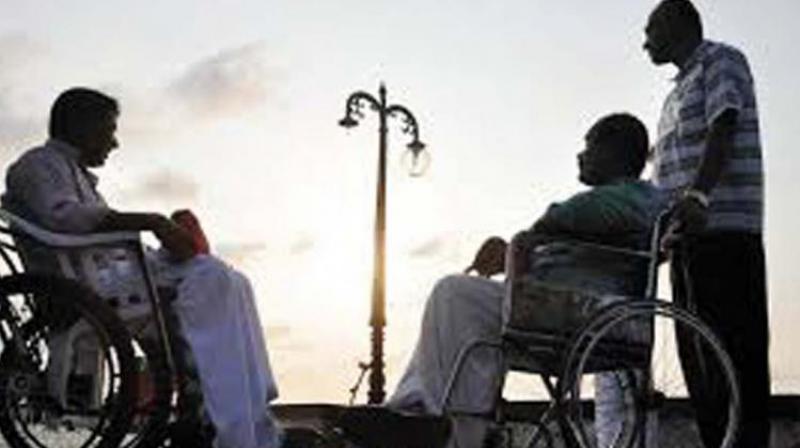Palliative care is all about quality in life, dignity in death
State govt was first in Asia to pass Pain and Palliative Care policy in 2008.

World Palliative Care day is celebrated every year in over 100 countries on the second Saturday of October. On this day we collectively express solidarity with those suffering from any life limiting illness or those whose predicted life span is short. This year's theme is 'Universal Health Coverage and Palliative Care, don't leave those suffering behind'. 'Pain is inevitable but suffering is optional' is about how we respond physically and emotionally to pain, if we have a choice , written by Dr Frankl in 'Man's search for Meaning' detailing the trauma in the Nazi concentration camps. Life has a quality and quantity, and in a scenario where the rule of thirds say that we can prevent a third of cancers , cure a third and are unable to do much for the remaining third, the relevance of quality in living and dignity in death takes precedence.
Every hour in India more than sixty five patients die from cancer and in pain, sad news and bad news, but they could have benefitted from the palliative care approach of converging concern, care and compassion which is the driving force. A specialty fondly referred to a 'low tech and high touch' majors on soft skills more than hard skills. An observing eye and an enquiring mind give one 'matter for the moment, and make us to be agents of change, make a difference and lead by example'. Touch is reassuring, therapeutic and comforting and the RCC has pioneered in this field. The Government of Kerala has to its credit, of being the first Government in Asia to have a Pain and Palliative Care policy passed in 2008, and taking a cue from our endeavor the states of Maharashtra and Karnataka passed a similar policy.
The Regional Cancer Centre has to its credit of being the first cancer centre among the twenty seven similar centres to start a pain clinic in 1984, and perhaps the only Hospital in the world to have a Morphine manufacturing plant where both formulations (liquid and capsules) are manufactured and given free to majority of patients in agonizing pain, and at highly subsidized rates to the paying category. The RCC has a seamless relationship with the NGOs 'Care plus' and 'Ashraya' we have a robust home care programme, and peripheral clinics.
Palliative Care takes care of Physical issues like pain (P), Emotional issues (E) , Psychological and Psychosocial issues (P) , Spiritual concerns (S), and Interpersonal issues between the living and the dying .For us at the RCC, the acronym PEPSI reminds us of the patient who is our celebrity, with whom we celebrate 'life' as we 'make a living by what we get, we make a 'life' by what we give, giving our 'time ,talents and treasures'. Our endeavour has been to help patients and families make the difficult transition from being 'seriously ill and fighting death' to being 'terminally ill and seeking peace', and in this road map we 'minimize formality and maximise humanity'.

